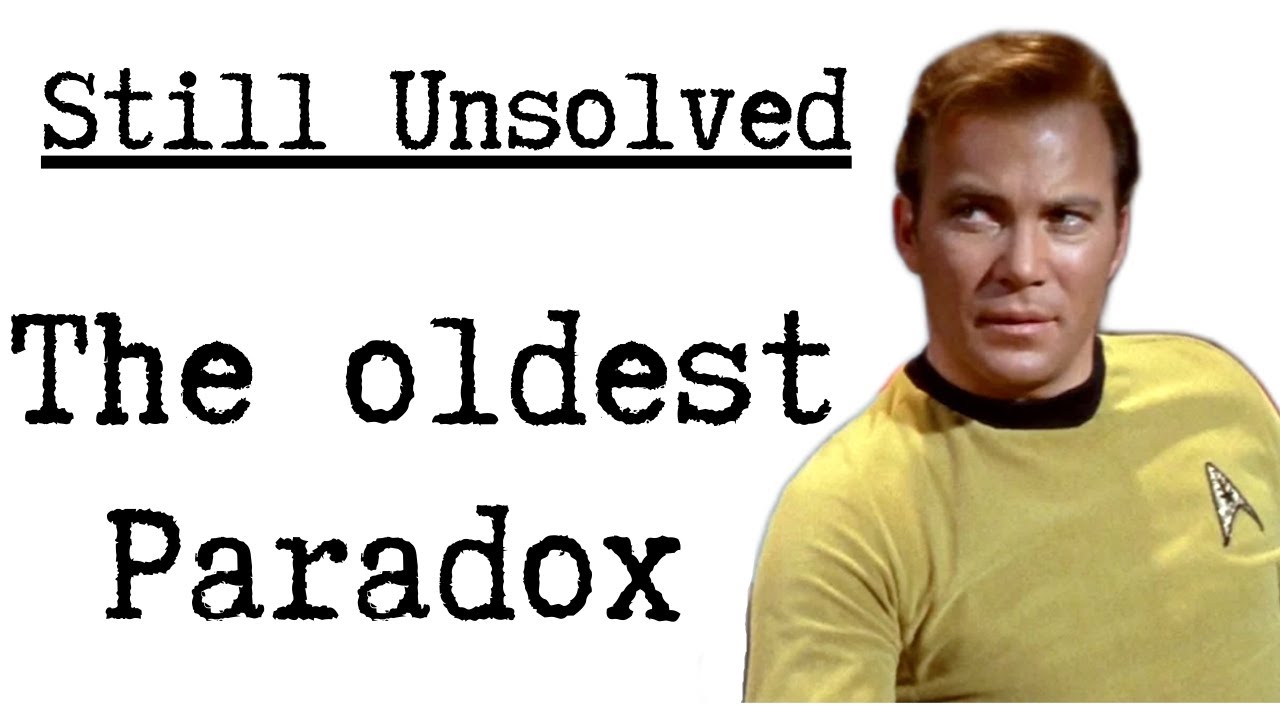Mind-bending Paradoxes And Riddles - Master Critical Thinking With These Riddles
Mind-bending paradoxes and riddles have fascinated people for centuries, challenging the mind and leading to deep philosophical questions about the nature of reality, truth, and knowledge. Paradoxes are logical puzzles that seem to contradict themselves, while riddles are enigmatic questions or statements that require creative thinking to solve.
Author:Xander OddityReviewer:Dr. Felix ChaosphereMay 25, 2023190 Shares2.5K Views

Mind-bending paradoxes and riddleshave fascinated people for centuries, challenging the mind and leading to deep philosophical questions about the nature of reality, truth, and knowledge. Paradoxes are logical puzzles that seem to contradict themselves, while riddles are enigmatic questions or statements that require creative thinking to solve.
The Most Difficult Paradoxes And Riddles To Solve
Here are some examples of mind-bending paradoxes and riddles, along with their explanations:
The Liar Paradox
The Liar Paradox is one of the most famous paradoxes in philosophy and logic. The paradox arises when we consider a sentence that claims to be false, such as the statement "this sentence is false." This statement seems to be both true and false at the same time, which creates a contradiction that challenges our understanding of truth and logic.
The Liar Paradox can be traced back to ancient Greek philosophy, where it was known as the Epimenides Paradox after the Cretan philosopher Epimenides. Epimenides is said to have declared that "All Cretans are liars," which creates a paradox similar to the Liar Paradox.
If the statement is true, then Epimenides, who is a Cretan, is a liar and the statement is false. On the other hand, if the statement is false, then Epimenides is not a liar and the statement is true.
The Liar Paradox was formulated more explicitly in the 20th century by the philosopher Bertrand Russell. Russell's version of the paradox involves a sentence that refers to itself, such as "this sentence is false."
If the sentence is true, then it must be false, because it claims to be false. On the other hand, if the sentence is false, then it must be true, because it claims to be false. This creates a contradiction that seems to defy our understanding of truth and logic.
One way to try to resolve the paradox is to introduce a distinction between object language and metalanguage. The object language is the language we use to make statements about the world, while the metalanguage is the language we use to talk about the object language itself.
In this approach, the Liar Paradox arises when we try to use the object language to talk about itself, which creates a self-referential loop that leads to contradiction. By introducing a metalanguage to talk about the object language, we can avoid the paradox.
Another approach to resolving the paradox is to deny the principle of bivalence, which states that every proposition must be either true or false. This approach suggests that some propositions may be neither true nor false, or that they may be both true and false at the same time. This view is known as dialetheism, and it has been defended by some philosophers as a way to resolve the Liar Paradox and other related paradoxes.

The Liar Paradox - an explanation of the paradox from 400 BCE
The Barber Paradox
The Barber Paradox is a well-known paradox in logic that was first introduced by the philosopher and logician Bertrand Russell. The paradox centers around a hypothetical barber who shaves all and only the men who do not shave themselves in a certain town. The paradox arises when we try to determine whether or not the barber shaves himself.
To understand the paradox, consider the following scenario: In a town there is a barber who shaves all and only the men who do not shave themselves. This means that if a man in the town shaves himself, then the barber does not shave him. On the other hand, if a man in the town does not shave himself, then the barber shaves him. Now, suppose we ask the question: Who shaves the barber?
If the barber shaves himself, then he must be one of the men who do not shave themselves. But this contradicts the fact that the barber only shaves the men who do not shave themselves. On the other hand, if the barber does not shave himself, then he must be one of the men who do shave themselves.
But this also contradicts the fact that the barber only shaves the men who do not shave themselves. This creates a paradox: If the barber shaves himself, then he does not shave himself. But if he does not shave himself, then he does shave himself.
The Barber Paradox highlights a problem that arises when we try to use language to talk about itself. In this case, the paradox arises because the barber is described using a sentence that refers to him and to the other men in the town. This creates a self-referential loop that leads to a contradiction.
One way to try to resolve the paradox is to introduce a distinction between definite descriptions and names. A definite description is a phrase that describes a unique object, such as "the barber of the town." A name, on the other hand, is a word that refers to a specific object, such as "John Smith."
In this approach, the paradox arises because the definite description of "the barber of the town" is ambiguous. It can refer either to the barber who shaves all and only the men who do not shave themselves, or to some other barber in the town. By introducing a name for the barber who shaves all and only the men who do not shave themselves, we can avoid the paradox.
Another way to try to resolve the paradox is to deny the assumption that there is a unique barber in the town. This approach suggests that there may be multiple barbers in the town, some of whom shave themselves and some of whom do not. In this case, the paradox does not arise because there is no unique barber who can be both a shaver and a shavee.
The Ship Of Theseus Paradox
The Ship of Theseus Paradox, also known as the Theseus' paradox, is a classic philosophical thought experiment that explores the concept of identity over time. The paradox asks the question: If all the parts of a ship are replaced, is it still the same ship?
The paradox is named after the legendary Greek hero Theseus, who is said to have sailed a ship called the Argo on his famous quest for the Golden Fleece.
According to the story, as the ship aged and its parts began to wear out, Theseus replaced each plank and piece of timber with new ones until every part of the original ship had been replaced. The question then arises: is the ship that Theseus sailed on still the same ship, or has it become a different ship altogether?
One way to approach this paradox is to consider the nature of identity. What makes an object or entity the same thing over time? Is it its physical composition or its function? If we define identity in terms of physical composition, then the ship that Theseus sailed on is no longer the same ship, since all of its original parts have been replaced.
On the other hand, if we define identity in terms of function or purpose, then the ship that Theseus sailed on is still the same ship, since it continues to serve the same purpose of being a vessel for sailing.
Another way to approach the paradox is to consider the role of intention in defining identity. If we accept that intention plays a role in defining identity, then we can ask whether Theseus intended to create a new ship or to preserve the original ship.
If Theseus intended to create a new ship, then the ship that he sailed on after replacing all its parts is a new ship altogether. But if he intended to preserve the original ship, then the ship that he sailed on is still the same ship, even if all of its parts have been replaced.
The Ship of Theseus Paradox raises many interesting questions about identity, continuity, and change over time. It also has implications for fields such as biology and psychology, where questions of identity and continuity arise in the context of biological organisms and personal identity.

The Paradox of Theseus's Ship (90 Second Philosophy)
People Also Ask
What Is The Purpose Of Mind-bending Paradoxes And Riddles?
The purpose of mind-bending paradoxes and riddles is to challenge the mind and lead to deep philosophical questions about the nature of reality, truth, and knowledge.
Why Are Paradoxes And Riddles Important?
Paradoxes and riddles are important because they encourage creative thinking, help people question their assumptions, and expose the limitations of logical systems.
What Are Some Famous Paradoxes And Riddles?
Some famous paradoxes and riddles include the Liar Paradox, the Barber Paradox, the Ship of Theseus Paradox, the Monty Hall Problem, and the Two Envelopes Problem.
Conclusion
Mind-bending paradoxes and riddles can be both entertaining and enlightening, as they challenge people to think creatively and critically. They often reveal the limitations of our logical systems and highlight the complexity of the world around us.
Many philosophers and mathematicians have studied these paradoxes and riddles throughout history, leading to new insights into the nature of reality and knowledge. Ultimately, these mind-bending puzzles continue to fascinate and challenge us, pushing us to think beyond our current understanding and explore new ideas and perspectives.

Xander Oddity
Author
Xander Oddity, an eccentric and intrepid news reporter, is a master of unearthing the strange and bizarre. With an insatiable curiosity for the unconventional, Xander ventures into the depths of the unknown, fearlessly pursuing stories that defy conventional explanation. Armed with a vast reservoir of knowledge and experience in the realm of conspiracies, Xander is a seasoned investigator of the extraordinary.
Throughout his illustrious career, Xander has built a reputation for delving into the shadows of secrecy and unraveling the enigmatic. With an unyielding determination and an unwavering belief in the power of the bizarre, Xander strives to shed light on the unexplained and challenge the boundaries of conventional wisdom. In his pursuit of the truth, Xander continues to inspire others to question the world around them and embrace the unexpected.

Dr. Felix Chaosphere
Reviewer
Dr. Felix Chaosphere, a renowned and eccentric psychiatrist, is a master of unraveling the complexities of the human mind. With his wild and untamed hair, he embodies the essence of a brilliant but unconventional thinker. As a sexologist, he fearlessly delves into the depths of human desire and intimacy, unearthing hidden truths and challenging societal norms.
Beyond his professional expertise, Dr. Chaosphere is also a celebrated author, renowned for his provocative and thought-provoking literary works. His written words mirror the enigmatic nature of his persona, inviting readers to explore the labyrinthine corridors of the human psyche.
With his indomitable spirit and insatiable curiosity, Dr. Chaosphere continues to push boundaries, challenging society's preconceived notions and inspiring others to embrace their own inner tumult.
Latest Articles
Popular Articles